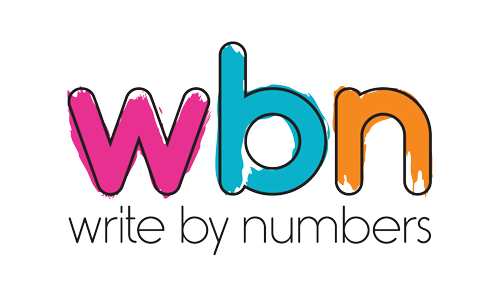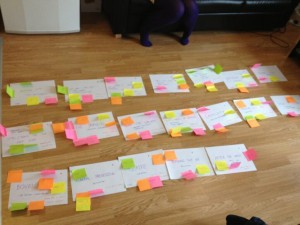Things I have never done before as a writer (or indeed any type of theatre-maker): taken part in a “scratch”.
Oh, I’ve done “rehearsed readings” and “script-in-hand”. As befits the turnaround of some of WBN’s work I’ve also done “make a play in just over a week with a couple of theatre lights and some string”. But an actual scratch-scratch. No.
So it’s probably a nice thing that my first ever scratch was with the BAC – who, I found out recently, invented the term “scratch”. As part of their ethos, they’re very open to the idea of things failing as part of a scratch.
And, well, when we scratched Beneath the Albion Sky at Latitude it did fail.
This is quite a thing to throw out, but it just didn’t work. Maybe we’d been too complacent – we’ve made work for market in Brixton, in getting-people-to-listen and work to, well, work I hold that quite high up as a challenge. After that how difficult would a festival be? I’d been to Latitude three times prior to us taking Albion Sky. We were doing direct address (which I, with a careless swish of my hand, have been repeatedly heard to state is the only type of performance that properly works in a festival setting) after all the swapping and swapping some more Charlie and I were convinced that, though undoubtedly needing a little bit of audience commitment, we were on to something.
It was an odd feeling, and, amongst the mud with a consolatory cider in hand, we picked through with the realisation that we hadn’t actually provided ourselves with any sort of get-out-plan for the failure scenario.
I know it’s a cliché to say that failing was an important part of developing the play but, in this case, it was. Once we’d had a few days, a shower and eaten something that wasn’t bought from a van in a field we could draw some lessons:
* We’re doing something slightly discombobulating with Albion Sky in terms of where it sits with reality/fantasy and how far this is a real-person-telling-a-real-story and how far it is an-actor-doing-some-storytelling. We set it up as one thing then it becomes something else. Before becoming something else again. We need to take the audience through this with us because if we lose them early on then really it’s difficult for them to get their footing again.
* Genre. We’re writing in the styles of multiple genres that, quite simply, you don’t really see on stage that often. With my literature BA hat on I’d argue that what we’re doing in parts is a descendent of oral storytelling, but it remains that our familiarity with this type of material is from a written rather than oral tradition. And even then, familiarity is often from a modern adaptation standpoint. So maybe, somewhere, one person will get that I’m aping Thomas Malory’s sentence structure in a particular section, but that in itself isn’t enough. Words on the page vs. words for performance. But that doesn’t mean we need to lose that entirely, we just need to make it new.
* Related to both of the above, we need to be brave and a little uncompromising. We have to push the setup all the way and not retreat – for if not why should an audience stay with it?
* Paul has to be Paul and not an-actor-playing-Paul. In the way that if I were to get up on stage (Lord help us all) and deliver a piece about, I’d don’t know, all-the-places-I’ve-had-really-good-cake I would be Corinne being Corinne (albeit a heightened, edited and, hopefully, slightly funnier version of Corinne) not an-actor-playing-Corinne. This is what we have to achieve with Paul.
* No one, not even David Tennant performing a script by Jez Butterworth and directed by Danny Boyle, can compete with Rhianna’s S&M turned up to 11 from the tent mere meters away.
But it was clear that we needed to scratch again before we could take Albion Sky further. However rational and circumspect you may be – your new play failing on its first outing is a bit of a poke in the ego. So, with a slightly amended script we decamped to Exeter for a couple of days in November to take part in SCRATCH! at the BikeShed. This was different in a a number of ways – not least in our ability to control the surroundings in terms of things like: lights, where the audience sit and not having pop songs playing throughout.
If this reads a bit breathless and lovestruck then I make no apology, but SCRATCH! was exactly the sort of environment that you dream of putting your fledgling work out into. It’s a compliment to both the BikeShed and its audience that they’ve created a space where you can test something, and not only does the audience come with you but they stay in the bar afterwards to talk about it. And, possibly as a result of some of the stuff we’d learnt from Latitude, the play worked.
Not perfectly.
But it worked; it was funny in parts and sad in others and I could see where we were going and why we were going there. And I got that other people could too.
And, maybe most importantly, people asked questions. Who was Paul? Why was he doing this? What was the thing with the dragon? What had happened with his Dad? And then some lovely thematic questions that got my head spinning: what is modern mythology? How far is the structure representative of what’s happening in Paul’s head?
As it turns out, I like working through questions. It’s one of my ticks that I write questions to myself down the side of my scripts. I think it’s cute rather than a sign of self-involvement.
And at the start of March when Charlie and I sat down in earnest to put together the play the first thing we did was to pull the 20+ feedback forms from that night and either answer, attempt to answer or work out how we might answer the questions asked on them. I’m hoping that by the time we get to June we’ll have found good answers to them all.

